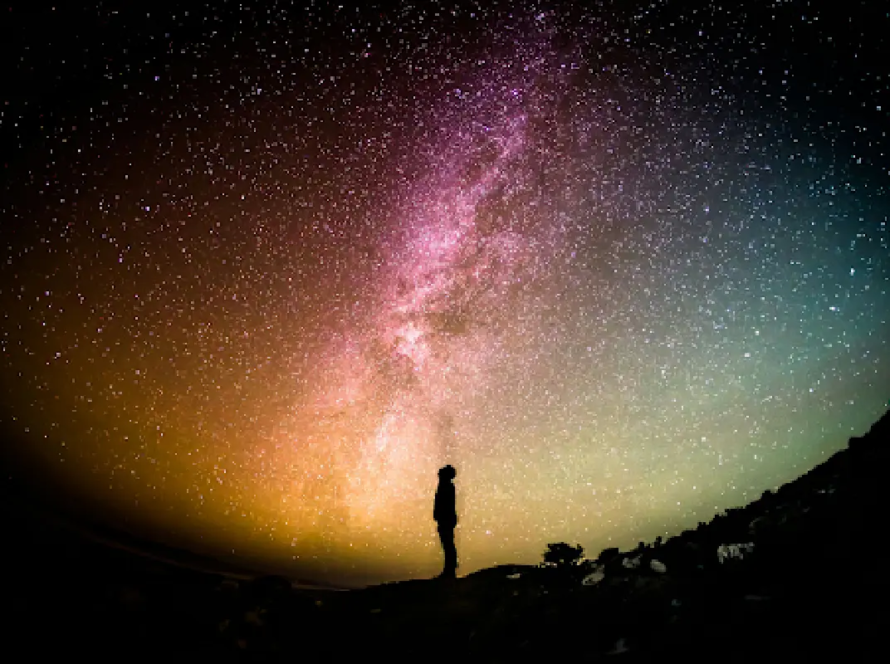Student – Hi Lama la, I’m a law student. After graduation, and if I pass the bar exam, I’d like to rise up through the ranks – not for status or money, but to benefit the country. As a practicing Buddhist, I would like to ask Lam a few questions: What does Lama believe should be the underlying principle of law enforcement, and what should I study that will help me to gain wisdom and develop a wider perspective of the cases that I will be dealing with? Thank you, Lama la.
Master – I applaud your aspiration to benefit society. Of course, in an ideal world, like the one envisaged in the mythical Buddhist kingdom of Shambhala where the inhabitants live in harmony, good health, and take care of each other’s well-being, regulations and law enforcement are unnecessary.
However, our world is far from ideal, and rather than harmony, economic systems and social mores increasingly promote self-interest and individualism. This stokes the fires of greed and normalizes disregard for others’ welfare.
Crime thrives in such an environment, affecting families and communities. Laws are created to counter this trend and keep people safe, with enforcement a necessary part of the legal framework.
Sadly, however, modern-day laws are more inclined towards punishment and revenge than understanding and reform. Of course, threats of incarceration act as a deterrent to a potential criminal, but merely throwing someone in a cell without considering ways to help him or her reform benefits no-one – least of all society.
There should be no confusion here. We absolutely need to remove people who harm others from society. There is no doubt about that. Otherwise, our streets will become lawless and people would be unsafe, even in their own houses.

However, as Buddhists, we should never lose sight of the fact that everyone possesses Buddha nature and so are inherently good. This is a unique quality of Buddhism that differentiates it from most other popular religions, which consider humans as indelibly stained by innate badness. Consequently, the followers of these religions can only plead to a god for salvation and pray to be allowed to enter heaven when they die.
In contrast, Buddhism believes that we commit crimes and negative acts due to ignorance, not because we are inherently bad. This is evidenced in the painting of the ‘Wheel of Life’. At the centre, there is a pig, which represents ignorance, chasing a snake and rooster that respectively embody aggression and greed.
What is ignorance? Think of a child at a tshechu/ festival. He is terrified of the mask dancers and wants to run away or to kick them if they come close. No matter how earnestly his mother tries to make him understand that they are only monks in disguise, he does not believe her.
The boy’s perception is incorrect. Consequently, his reactions are misguided. This is how Buddhism defines ignorance and its offshoots. The pig produces a snake and rooster, which continuously run around in circles.
Now, during the break, the boy goes to the toilet, passing the monks’ changing room on the way. Suddenly, he sees a monk removing his mask. Ignorance is instantly eliminated, and never again will he be scared by the monks in masks. Even if he wanted to, he could not.
With respect to the mask dancers, he is sane, and wisdom, not ignorance, now drives his reactions. He is calm and in good humour, which is actually our natural state.
To repeat, Buddhism does not subscribe to the idea that people are inherently bad, but instead recognizes that negative acts are committed due to ignorance. Now, in the same way that smudges on a pane of glass are not part of the glass and can be washed away, so ignorance is not inherent to our nature and can likewise be removed.
In view of this understanding, the aim of the law should not be restricted to temporarily incarcerating people who have committed crimes, but to understand what drove them to hurt others, to reform their character, and help them to achieve their potential as human beings. When this is done, not only is society ensured short-term safety, but its long-term security is also established.

If we need a role model for such a system, think no further than a mother. She may punish a wayward son. She may be severe, even locking him in a room if he is violent towards his siblings. However, a mother never acts out of revenge or to hurt her son, but disciplines him purely with the aim of correcting his behaviour. From the bottom of her heart, she wants her son to reform and become a good human being.
This is the attitude that not only law enforcement should adopt, but society as a whole.
Unfortunately, most of the planet has adopted a Western system of law enforcement, which is based on an ideology where people are considered inherently bad. As a result, a call for justice is generally just a way to suppress the badness by instilling fear in those who may be contemplating committing a crime.
Does this system work? Not if we take the US as an example. Despite being the nation with the highest incarceration rate of any democracy on the planet, it continues to be home to some of the world’s most dangerous cities and criminal gangs.
No-where does the failure of an ideology of punishment devoid of reform appear more evident than in the incarceration of addicts. No-one is born an addict, but people become so due to their environment.
If the conditions where people are raised have no effect on their habits, then there would be a similar number of drug abusers in all countries with comparable laws, but this is not the case.
As an example, consider Taiwan and the US. In terms of addiction, babies in both countries are genetically the same, and it is not that those born in the US have a greater propensity towards addiction than their counterparts in Taiwan. However, the number of addicts in the East Asian country is incomparably lower than it is in the North American one.
Still, despite an obvious correlation between social conditions and addiction, countries continue to lock up drug abusers, rather than asking what drives people to become addicted to drugs and then addressing these issues.
This is no different from a farmer throwing identical seeds onto the land, and then blaming the seeds for producing fragile plants, rather than examining the soil in the areas where the weak plants are prevalent.

As part of a law enforcement agency, I therefore suggest you adopt an attitude similar to that of a mother towards her wayward son. You can be tough and severe, but you should never administer punishment devoid of conditions that enable a criminal to reform and become a decent and well-adjusted person, or at least you should maintain this heartfelt aspiration.
You should further be aware that all addictions arise due to childhood trauma. Therefore, addicts need help, not incarceration. Not only does the latter option damage an already fragile mind, but condemns many young people to a cycle of relapse and jail.
With regard to broadening your perspective of situations, I suggest that you familiarize yourself with the ‘Four Seals of Buddhism’, while for addiction I recommend the work of Dr. Gabo Mate, using the following teaching uploaded on YouTube by FightMediocrity as a prelude: ‘The Best Explanation of Addiction I’ve Ever Heard – Dr. Gabor Mate’.



